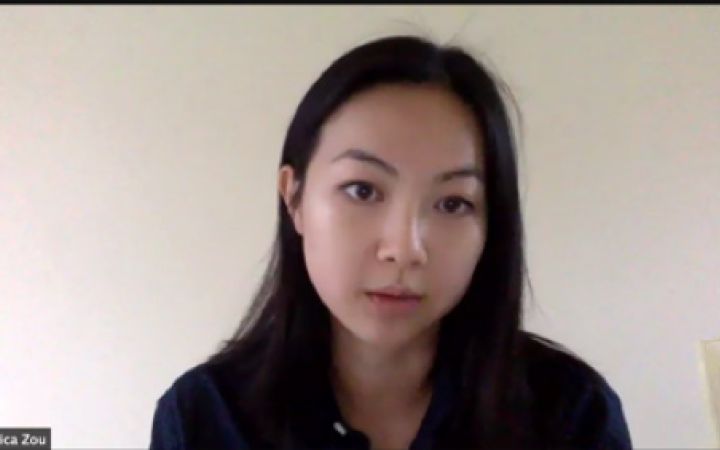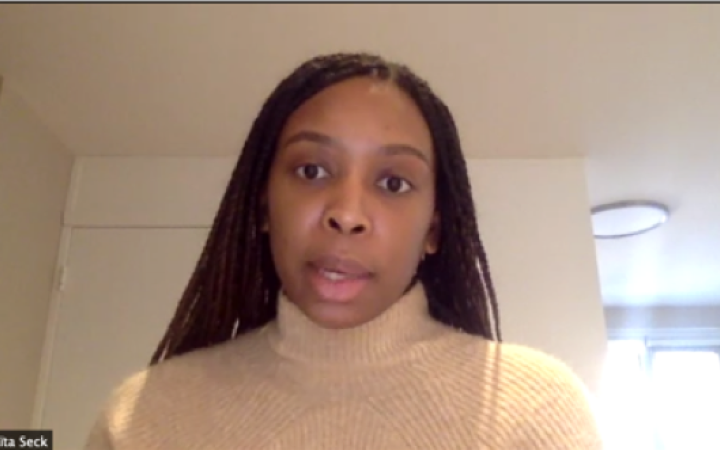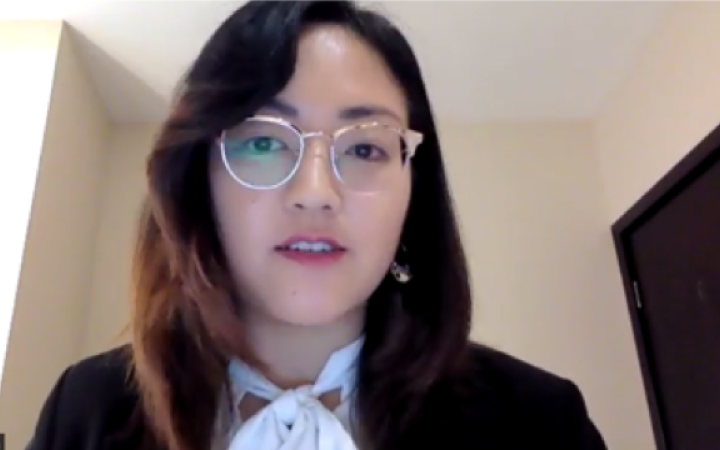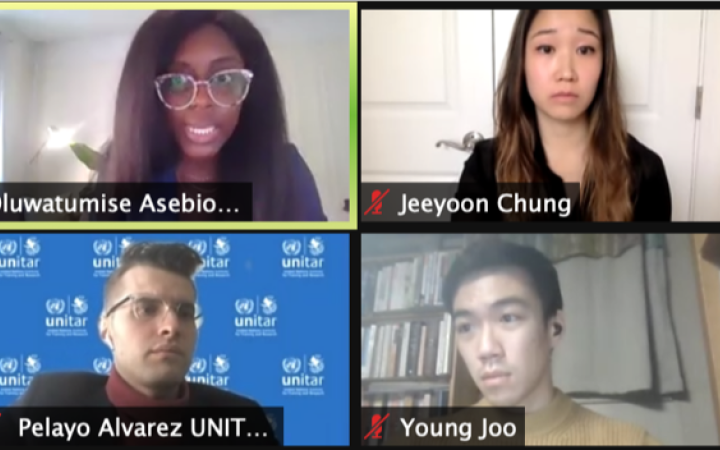12 February 2021, New York, USA (Virtual) - The United Nations Institute for Training and Research (UNITAR) New York Office, along with the Columbia Law School, hosted the “Antiracism in Peace-Building and Conflict Resolution” workshop on Friday, 12 February 2021. The workshop was the first session of the Spring 2021 Columbia Law School training series. Over 140 participants joined the session virtually from different parts of the world and was supported with funding allocated from the Swedish International Development Agency’s (SIDA) contribution to the UNITAR Strategic Framework Fund, under the programme ‘Leveling the Playing Field’ which focuses on the development of skills and knowledge of Least Developing Countries. Participants of the whole series will receive a certificate signed by the Dean of Columbia Law School, Gillian Lester and ASG, Executive Director, Mr. Nikhil Seth.
The workshop was launched by UNITAR Programme Coordinator, Mr. Pelayo Alvarez. He introduced the themes of the workshop, thanked the participants for their attendance and introduced the workshop’s facilitator, Professor Alexandra Carter, Director of the Columbia Law School Mediation Clinic. Prof. Carter provided introductory remarks on similarities between antiracism and peacebuilding, particularly the fact that they both require active and intentional work to achieve. Prof. Carter then introduced her team at the Columbia Law School Mediation Clinic to discuss pertinent concepts in more depth.
Mr. Cameron Molis began by introducing the goals of the workshop, which were to specifically identify how racial bias manifests itself, examine the role of leaders in navigating racial issues and discuss best practices. Mr. Molis then led participants through an icebreaker, in which participants were asked to share experiences when they have observed conflicts influenced by racial biases. Ms. Erica Zou then began the conversation on diversity awareness, cultural competence and antiracism. Ms. Zou stressed that the former two concepts fall short of addressing all forms of racism, specifically personal, institutional and systemic racism.
Mr. Oliver Kwon then defined antiracism as an active, intentional process of identifying and eliminating racism at all levels. He continued with explaining the role of an antiracist as an individual who understands the systemic origination of inequality and is willing to address how existing policies underserve people of color. Ms. Jeeyoon Chung then delivered remarks regarding manifestations of racial biases. She specifically covered examples of overt assertions of racial bias that are typically more obvious, such as racial slurs and negative generalizations. Ms. Meyer Horne covered the more subtle examples of racial bias. She referred to this as the “dog-whistle context”, in which an expression or statement has a secondary meaning meant to be understood by a specific group. This can be either active or passive, but is still extremely harmful, nonetheless
Ms. Aita Seck then spoke about the institutional skepticism that many racial, ethnic and religious minorities may have toward certain institutions due to historical injustices. This specifically includes issues such as over-sentencing and underrepresentation in law employment. She also spoke about the barriers to communication that exist due to racism and racial bias, specifically the silencing of marginalized voices. Ms. Seck also mentioned the issue of unconscious implicit bias, acknowledging that this heavily influences interactions between people. Ms. Brigitte Atchekzai then took over to discuss the different approaches of “colorblindness” and “color-consciousness”. She explained that the “colorblind” approach fails to account for the fact that decisions are often made on racial biases, discrimination and inequities. The “color-consciousness” approach directly addresses these issues and therefore should be utilized over “colorblindness”
Mr. Young Joo then led the conversation on tools for antiracism leadership. This includes awareness, promotion of mutual respect and participation, and the willingness to take active steps in combatting racism. Ms. Anna Xie discussed the concepts of acknowledgement and stroking, in which recognition and praise is delivered for positive behavior or productive moves. Ms. Angie Garcia then discussed the concepts of reframing, looping and clarification. These moves are helpful in navigating conversations of racism and racial bias as they directly address the issue and clarify meaning
Ms. Oluwatumise Asebiomo closed the lecture portion of the workshop by explaining the benefits of one-on-one conversations in racial conflicts. However, she also offered the sentiment that not all individual conversations will be productive and may actually eclipse progress toward peace-building. She concluded with exit strategies in the event productive conversation is not possible. Moving into the interactive portion of the workshop, Ms. Asebiomo outlined the hypothetical scenarios that participants would be discussing in small groups. The first scenario was an overt example of racial bias and discrimination, whereas the second scenario was the subtler “dog-whistle” scenario mentioned earlier in the workshop. Following the discussions and upon returning to the primary workshop, all speakers and participants shared their thoughts on the scenarios, as well as offered their own stories experiencing or witnessing racism.
Prof. Alexandra Carter closed the workshop by thanking participants for their enthusiastic participation, as well as for sharing their deeply impactful stories of how racism has affected their lives. Mr. Pelayo Alvarez also thanked the participants and speakers for their time and reminded participants of the next workshop in the Spring 2021 Columbia Law School Series scheduled for 26 February 2021.







